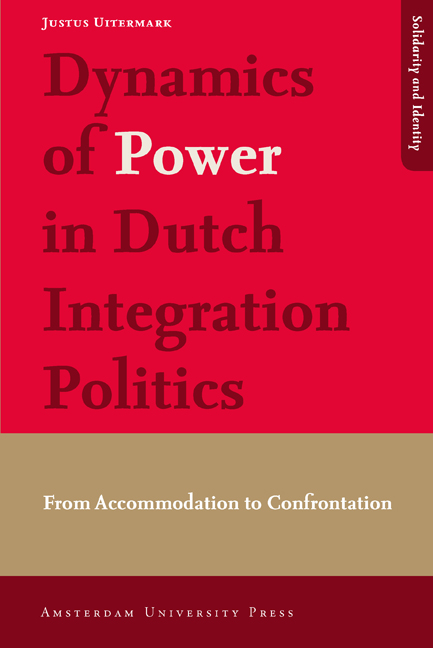11 - The Rise of Culturalism and the Resilience of Minority Associations: Civil Corporatism in Rotterdam
Published online by Cambridge University Press: 15 January 2021
Summary
The recent history of integration politics in Rotterdam is at least as turbulent as that of Amsterdam. In 2002, Pim Fortuyn achieved his first great electoral victory in his hometown of Rotterdam. Fortuyn was virulently opposed to what he saw as the Islamization of the Netherlands (see Chapter 5). After his death, the council members and aldermen of his party, Leefbaar Rotterdam, continued Fortuyn's promotion of a culturalist discourse. Leefbaar Rotterdam was extremely critical of minorities and Muslims but, contrary to what we might expect, minority and Islamic associations flourished in this period. Why? The key to answering this question is the specific governance figuration that emerged in Rotterdam in the 1980s, one that has since remained stable and which I refer to as civil corporatism. The first section of this chapter examines civil corporatism's genesis and evolution; the second shows how civil corporatism produced a balance of power between different types of actors. The third section then identifies three contradictions that plague civil corporatism. The fourth section concludes that Rotterdam's governance figuration may well have increased the power of minority associations.
The formation of civil corporatism
The progressive movements of the 1970s and 1980s had a strong presence in Rotterdam but were not nearly as powerful as in Amsterdam. Those who were attracted to the feminist, gay, squatting and other movements gravitated to Amsterdam with its educational institutions, intellectual elites and cultural provisions. Rotterdam was and remains more of a working class city. It proved a fertile environment for various extreme-right parties and – in contrast to Amsterdam – there were a number of occasions where native mobs assaulted guest workers. The largest outbursts of violence against immigrants in the Netherlands occurred in Rotterdam South in 1972. Pensions were set alight and guest workers assaulted. The riots that ensued lasted for days, as native youths threw up barricades and fought the police (Dekker & Senstius 2001).
Immigrants received help from community workers and support groups, though these were not as large or as politicized as in Amsterdam. One consequence was that, in contrast to Amsterdam, the Welfare Foundation for Foreign Workers in Rotterdam did not collapse under the pressure of internal conflicts.
- Type
- Chapter
- Information
- Dynamics of Power in Dutch Integration PoliticsFrom Accommodation to Confrontation, pp. 217 - 232Publisher: Amsterdam University PressPrint publication year: 2013



